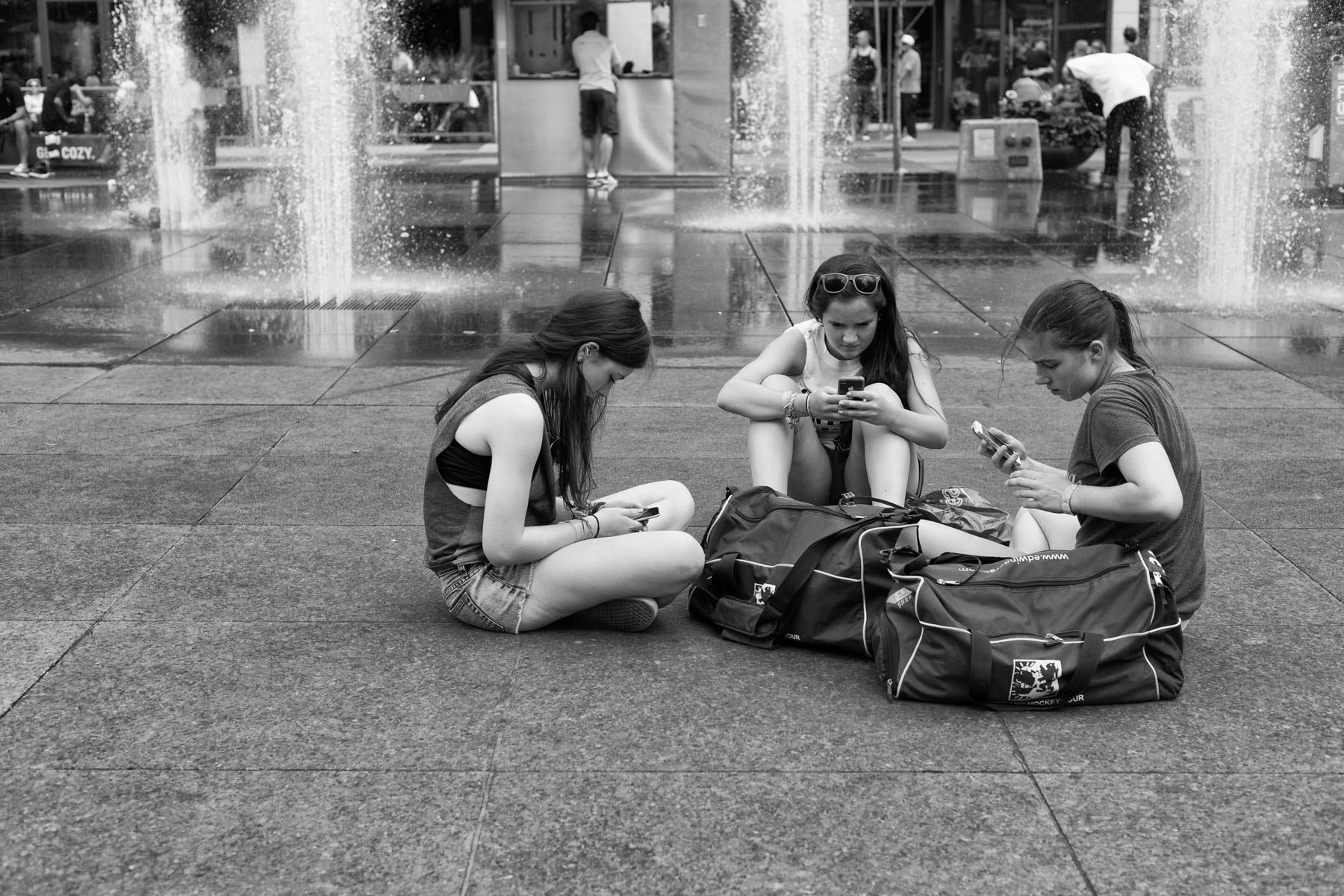Reality Check: Living in the Present

With the creation of the internet and digital devices, our connection with others has reached farther and faster than any letter, telegram, or Pony Express rider could have ever dreamed of. Nearly every morsel of knowledge is available the instant we click the search button. An endless library of resources is accessible on a device the size of a deck of cards. Friends and family thousands of miles away can have face to face conversations anytime. Technology has expanded the world to unimaginable proportions.
Over the years, technology has transformed the way we live. No longer do we go down to Blockbusters to rent a movie or wait for the only phone in the house to free up. Now, we stream movies online through Netflix and the landline is abandoned as cell phones dominate households. Our TV watching habits have also evolved; instead of being home at a specific time to catch the newest episode, we record shows for later viewing or watch it online.
Unfortunately, the cost of being able to get what we want on demand has made us impatient. The immediacy we are accustomed to with technology has lead us to expect the same timeliness in other aspects of our daily lives. It’s an increasing issue on the roads, as drivers cut off, honk at, or make unflattering hand gestures at others. We see it at the cash register when customers in line glance at their phone every few seconds because they can’t stand being idle. Nearly everyone is guilty of hurling his or her phone in frustration because the internet is taking more than 30 seconds to load. We are so fixated on immediacy that seconds feel like hours.
Technology has also found its way into every aspect of daily life. From the instant our hands sluggishly slam the snooze button on the alarms on our phones to the bedtime ritual of scrolling through hours of Instagram and Snapchat posts, it is clear how electronic devices have become entrenched in our daily routine. According to research conducted by Common Sense Media, teenagers spend an average of nine hours on digital media daily, excluding time spent for school or homework. That’s more time than an average teen sleeps. We view videos and photos on Instagram and Snapchat that only last a few seconds. We continuously click on YouTube video after YouTube video in the suggested column. We spend hours playing addictive, free apps. When we are surrounded by screens vying for our attention, it’s easy to be consumed by the onslaught of online content.
With the increase in visual stimulation, we often forgo another sensory skill: listening. In class, it has become difficult to pay attention to the teacher when an iPad lies inches from our fingertips. Lectures are boring and hard to follow if there isn’t a video clip in the lessons. We skim through posts and videos rather than grasp the entirety of them. Even during lunch when friends recount an issue they’re facing, there is always someone checking his or her phone mid conversation and only half listening. When we constantly switch our attention from others to our devices, we sacrifice making connections and miss the full meaning of what is happening in the moment around us.
It is true that technology has improved our lives significantly and has helped us connect and communicate in more ways than we’ve ever dreamt of. Ironically, though, it can also rob us of patience and the ability to listen, which are essential to connecting with people around us. When we subject ourselves to such attention absorbing devices, we lose touch with our immediate world. Therefore, how do we remain connected in a world where technology keeps us disconnected? The answer isn’t a matter of giving up technology completely, but finding a balance between when to use it and when to leave it aside. As technology plays an increasing role in our lives, we need to practice more discipline when wielding it. Our devices shouldn’t control how we live or replace our relationships with others. Convenience shouldn’t make us lazy. Digital media was intended to help us communicate, create, and learn, but it is also just a tool. We must learn how to use and master such tools before we become slaves to them.
